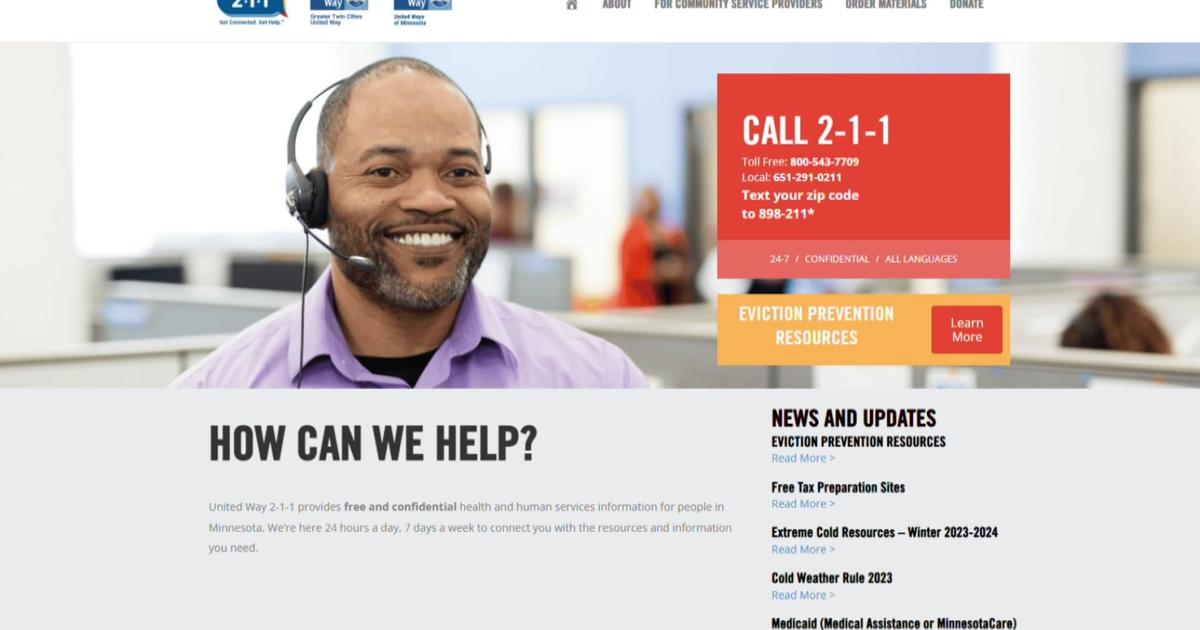Report Examines Program To Help Exploited Minors, Gives Recommendations
MINNEAPOLIS (WCCO) – A new report on Minnesota's program to help young victims of sexual exploitation credits the state for raising awareness and helping dozens of victims get housing and access to support services. The report's authors also outlined how the program could be better, suggesting that it could help more than just minors.
The report, conducted by Wilder Research, examined the Safe Harbor Program, which went into effect last year, state officials said. The program seeks to help sexually exploited young people in Minnesota by treating them as victims and not as delinquents or criminals.
Health Commissioner Dr. Ed Ehlinger said the program is helping young people reclaim their lives.
"We are encouraging everyone involved with teens to become aware of Safe Harbor, as we expect there are many more youths who need help," he said in a press release put out Tuesday.
State officials say the program has eight regional navigators across Minnesota. In the last year or so, the navigators have helped up to 163 young people receive services and/or housing, the report states.
However, the exact number of youth helped isn't clear, as names weren't shared with the report's writers. As such, some teens could have been helped multiple times.
The Wilder report praised the state's program for raising awareness about sexual exploitation, its attempts to improve services, and for creating opportunities for collaboration, coordination, referrals, and housing.
The authors of the report also gave 11 recommendations to improve the program, officials said. The recommendations included raising the victim age limit to include those older than 18, developing more transportation opportunities, expanding services to 24 hours a day, creating more housing, and getting more funding.
State officials say that of the youth helped by the program, nearly all of them were girls and 60 percent of the victims live in the Twin Cities metro.
They added that more than half of the victims are in school and live with a parent/guardian. About two thirds have a history of drug use, depression or PTSD.



